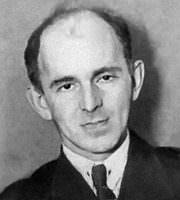About Osip Mandelstam
Osip Mandelstam (1891- 1943) was one of the greatest Soviet poets and essayists, he began his career under the banner of Symbolism. In 1911, he and several other young Russian poets formed the Poets' Guild. Despite his acceptance of the principles of the Russian Revolution and the sympathy shown to him by Gorky, Mandelstam was soon marginalized from the literary and ideological circles of his time. His three major books, The Stone (1913), Tristia (1921), and Poems (1928), which did not achieve widespread recognition until the 1960s, reveal the sensibility of a European aesthete and humanist, as well as an unprecedented musicality in free verse. In his prose essays, The Sound of Time and The Egyptian Seal, the poet, who declared himself "no one's contemporary," proposed an idealistic but pessimistic vision of the world, which contributed to his seclusion and, later, deportation on the occasion of some verses in which the silhouette of Stalin seemed to be recognized. This "Russian Paul Valéry," who - it is said - joined the Mennonite sect, died in Siberia, probably in 1943, without having felt any resentment toward anyone. He was one of the foremost members of the Acmeist school of poets. Mandelstam's poetry, acutely populist in spirit after the first Russian revolution in 1905, became closely associated with symbolist imagery.Browse all poems and texts published on Osip Mandelstam
He published his first collection of poems, The Stone, in 1913.









